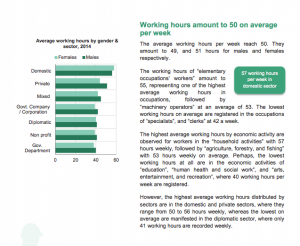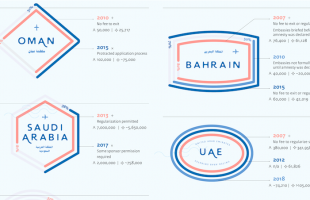The UN High Commissioner took a seemingly softer approach to the country’s migrant rights violations – contrasting with a previously more critical stance of the UN.
United Nations High Commissioner for Human Rights Zeid bin Ra’ad Al Hussein during a recent visit to Qatar, went soft on the country, commending the progress it has made including ‘replacing’ Kafala. He trivialized the violations, which he said “... happen in all countries in the world.”
This is the kind of reasoning that Qatar escapes to in order to evade accountability, as Migrant-Rights.org detailed in an article a few weeks ago.
While Qatar has made some progress, authorities continues to deny the scale of problems faced by its lower-income migrant workers.
The UN High Commissioner took a seemingly softer approach to the country’s migrant rights violations – contrasting with a previously more critical stance of the UN. As recently as 2014, the UN came down heavily on Qatar, demanding abolition of Kafala.
Qatar renamed the Kafala system in late 2015 but retained many of its most oppressive regulations, including exit permits and a ban on freedom of association, as well as a loophole allowing employers to confiscate passports.
[tweetable]High Commissioner Al Hussein quite clearly engaged only with workers handpicked by Qatar[/tweetable], and failed to provide a comprehensive picture of the country’s migrant worker issues.
From workers left homeless after escaping abusive employment, to apartheid-like segregation of housing, to the lack of accessible legal aid and abominable deportation practices (see sidebar), the evidence of all that’s wrong in Qatar is readily visible both around the small country and in the prolific research and reporting undertaken by rights organisations and independent media.
The UN High Commissioner’s comments will only feed Qatar’s denial of a dire situation.
Domestic Worker invisibility persists
Media reports do not indicate that the High Commissioner touched upon the plight of the country’s 154,000* domestic workers.
Yet even the latest Labor Force Sample Survey released by Qatar’s Ministry of Development Planning and Statistics (MDPS) highlight the exploitative conditions under which migrant work in the domestic or household sector. The survey corroborated Amnesty International's report My Sleep is My Break, which found that Qatar’s migrant domestic workers work on an average 60 hours a week, amongst the highest in the world.
The MDPS’s findings place domestic workers between 50 and 56 hours a week. About 56.1% of all females in the labor force are involved in ‘household’ activities, and a total of 154,000 migrants (majority women) are involved in domestic work.
Domestic workers are not covered under the labour law, and there is little or no protection extended to them. Elsewhere, Kuwait, and Saudi Arabia have attempted to draw up a standard contract or bilateral agreements that cover some of the pressing issues facing MDWS, including lack of a rest day and excruciatingly long working hours. These measures are imperfect and incremental steps towards realizing domestic worker rights, but their limited scope of protection marginally exceeds Qatar’s.
*MDPS survey that covered 22,749 households and 128,879 individuals (Qatari and non-Qatari).





